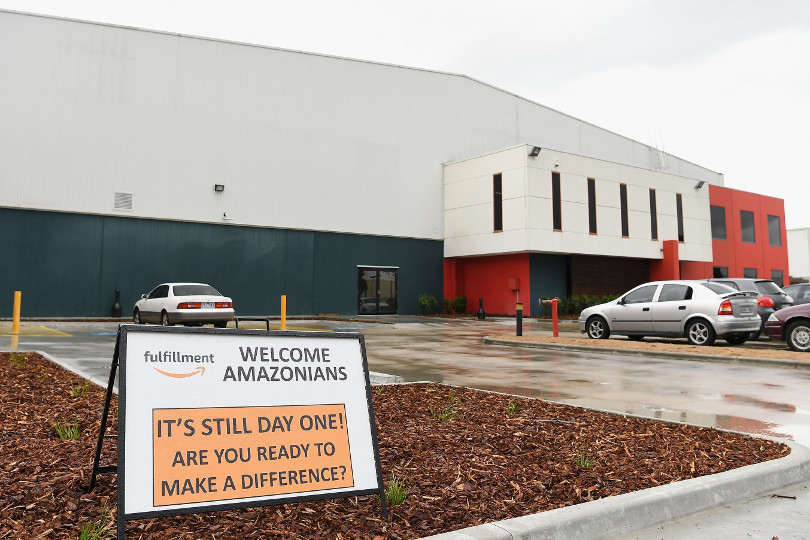Is the Marley Spoon-Woolworths partnership the answer to each other’s prayers?

Will the Marley-Woolworths deal be their saviour from their existing and potential troubles?
Yesterday, Woolworths (ASX: WOW) notified the market it completed its investment into Marley Spoon (ASX:MMM) earlier in the week.
According to the substantial holder notice it has a 5.52 per cent stake and paid $4.1 million on Wednesday.
The purchase was undertaken by subsidiary Woolworths’ VC arm W23 Investments. One person involved with W23, Jason Hew (an Investor), was until recently a senior manager at Woolworths for the previous three years.
The full investment will be $30 million with the majority in commercial notes.
Both companies have problems. Marley Spoon lost $31 million last year – although it is hardly the only food-delivery service to be recording losses.
After listing as $1.20 it fell as low as 44 cents earlier this month. But since the deal it has climbed to 75 cents at yesterday’s close and at this morning’s open jumped to 79 cents.
After years of investors disregarding the profitability of tech companies, the US IPO of Uber has raised the issue and lead to analysts to declare “a bubble”.
Marley Spoon is generating revenue but given no time frame as to profitability.
Amazon
On the other hand, Woolworths (and Coles) are facing the threat of disruption by companies offering “ultra-convenience” for consumers. This is both from startups and established giants such as Amazon.
Amazon could also pose a threat to Marley Spoon. While direct food delivery has been one of Amazon’s few failures, Marley Spoon does not offer finished food; just the ingredients. Amazon can deliver.
In the US, where Amazon is most dominant, “out of home” dining now exceeds spending on groceries. Amazon offers fast grocery delivery (one hour in some cities for Prime Members) and physical grocery stores (acquiring Whole Foods in 2017).
Amazon’s launch in Australia has been low key. But it is entering the grocery category and it’s clear it eventually wants to replicate the American landscape in Australia.
The biggest threat is its “Subscribe & Save Program” where consumers who make the same purchases can get discounts of 15-20 per cent. While this is not yet available, this is in Amazon’s future plans.

The founder of intelligence firm L2 Scott Galloway said in his book The Four:
“It helped [Amazon] that for the first fifteen years of its existence traditional retailers reminded consumers online shopping is worth one, two, three, four, five per cent of sales.
“There was no effort to respond to Amazon…until it was too late.”
Woolworths boss Brad Branducci gets this. He said last year: “We’re all competing for the family meal, and in that competition for the family meal the Uber Eats or the Deliveroos [sic] have made it very easy for you.”
“There are a lot of competitors trying to compete, in a world where people are time pressed and need a bit more convenience and ease.”
Are analysts convinced they’re saved?
Analysts were very concerned about Woolworths prior to the deal and still are. Of 10 analysts that wrote reports on them since early April, not one rated it as a buy. Half of the firms rated hold or neutral while the remainder rated it as a sell.
The deal has failed to change their minds. Deutsche Bank told its clients: “This transaction constitutes a small investment and is unlikely to be material in relation to the broader Woolworths business with Marley Spoon currently loss making.”
But analysts have tipped good things for Marley Spoon. Macquarie and CanAccord Genuinty have tipped it to rise to $1.10 and $1.30 respectively.
Even Deutsche Bank admitted Marley Spoon provided opportunities for synergies with Woolworth’s store network, loyalty programme, data and customers
Shen Li, analyst for Bloomberg’s research arm Bloomberg Intelligence (BI) told Stockhead the tie up may be of some help for Woolworths. BI offers independent research on 130 industries and over 2,000 companies.
‘Woolworth’s deal with Marley Spoon may provide it with an area of differentiation for its online growth’, he said.
However he warned that the broader situation has potential to be a lose-lose for the major chains.
‘Australian grocery chains have recognised the need to grow in e-commerce, and Amazon’s entry is accelerating that. However, e-commerce is a lower-margin business than their traditional offline retail, so growth in this area will cause some margin headwinds’.
‘As e-commerce becomes a larger part of their businesses, these retailers will need to innovate and offer differentiation. Some of this may be done through M&A’.
UNLOCK INSIGHTS
Discover the untold stories of emerging ASX stocks.
Daily news and expert analysis, it's free to subscribe.
By proceeding, you confirm you understand that we handle personal information in accordance with our Privacy Policy.








